How long do seeds last?
Creek-side
9 years ago
Featured Answer
Comments (29)
glib
9 years agolast modified: 9 years agothepodpiper
9 years agolast modified: 9 years agoRelated Professionals
Cary Landscape Architects & Landscape Designers · Stoughton Landscape Contractors · Maple Valley Landscape Contractors · Davidson Landscape Contractors · Holland Landscape Contractors · Hoover Landscape Contractors · Huntington Landscape Contractors · Lemay Landscape Contractors · Mesa Landscape Contractors · Pine Hills Landscape Contractors · South Lake Tahoe Landscape Contractors · The Villages Landscape Contractors · Vashon Landscape Contractors · Glenview Driveway Installation & Maintenance · Round Lake Beach Driveway Installation & Maintenancezzackey
9 years agolast modified: 9 years agowoohooman San Diego CA zone 10a
9 years agolast modified: 9 years agotheforgottenone1013 (SE MI zone 5b/6a)
9 years agolast modified: 9 years agoglib
9 years agolast modified: 9 years agodavids10 z7a nv.
9 years agolast modified: 9 years agodigdirt2
9 years agolast modified: 9 years agozeedman Zone 5 Wisconsin
9 years agolast modified: 9 years agoDeeby
9 years agolast modified: 9 years agograndad_2003
9 years agolast modified: 9 years agodaninthedirt (USDA 9a, HZ9, CentTX, Sunset z30, Cfa)
9 years agolast modified: 9 years agowoohooman San Diego CA zone 10a
9 years agolast modified: 9 years agoseysonn
9 years agolast modified: 9 years agodaninthedirt (USDA 9a, HZ9, CentTX, Sunset z30, Cfa)
9 years agolast modified: 9 years agozzackey
9 years agolast modified: 9 years agolilydude
9 years agolast modified: 9 years agodaninthedirt (USDA 9a, HZ9, CentTX, Sunset z30, Cfa)
9 years agolast modified: 9 years agotheforgottenone1013 (SE MI zone 5b/6a)
9 years agolast modified: 9 years agozzackey
9 years agolast modified: 9 years agolilydude
9 years agolast modified: 9 years agodaninthedirt (USDA 9a, HZ9, CentTX, Sunset z30, Cfa)
9 years agolast modified: 9 years agolilydude
9 years agolast modified: 9 years agoglib
9 years agolast modified: 9 years agodaninthedirt (USDA 9a, HZ9, CentTX, Sunset z30, Cfa)
9 years agolast modified: 9 years agoelisa_z5
9 years agolast modified: 9 years agozzackey
9 years agolast modified: 9 years agoken_adrian Adrian MI cold Z5
9 years agolast modified: 9 years ago
Related Stories
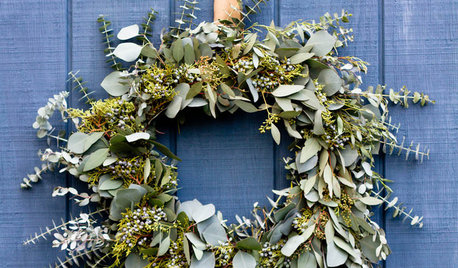
CHRISTMASMake a Long-Lasting Eucalyptus Holiday Wreath
Greens full of fragrance will keep your front door in the Christmas spirit for weeks
Full Story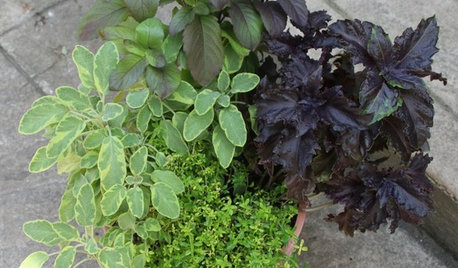
CONTAINER GARDENS8 Easy Container Plants to Grow From Seed
Get beautiful blooms and herbs in summer by starting these choice garden picks from seed in spring
Full Story
HOLIDAYSMake a Showstopping Fall Centerpiece That Lasts
With flowers that will dry beautifully, succulents and wood circles, this organic arrangement will wow guests all season long
Full Story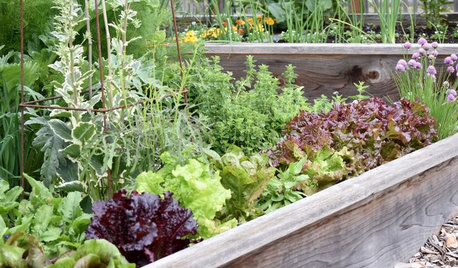
GARDENING GUIDESSeeds or Seedlings? How to Get Your Garden Started
Growing delicious herbs and vegetables starts with knowing your goals and when you want to plant
Full Story
KIDS’ SPACES9 Pro Tips to Create a Long-Lasting Kids’ Room
Hear what professional designers have to say about turning your nursery into a kids’ room that will last through the preteen years
Full Story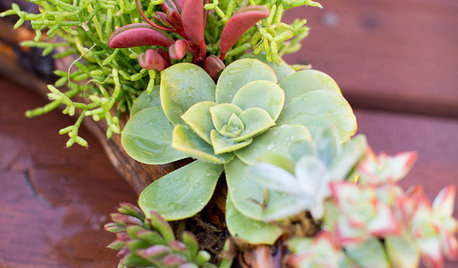
DIY PROJECTSMake a Beautiful and Long-Lasting Driftwood Centerpiece
Add succulents to found wood for an easy arrangement that looks straight from a designer florist's shelf
Full Story
ROOFSThis Long-Lasting Roofing Material Works With Many Styles
With their durability and wide range of colors and molded shapes, concrete roof tiles are worth a look
Full Story
HOUSEPLANTSMeet a Long-Lasting Houseplant With a Forgiving Heart
Low light and little watering won't scar Zee Zee plant for life; this East Africa native has a tolerant nature and an exotic beauty
Full Story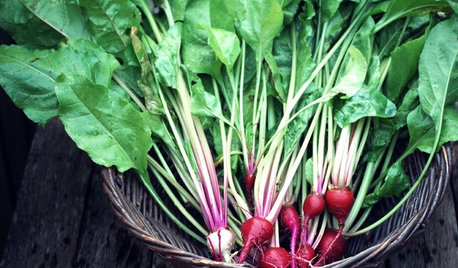
EDIBLE GARDENS8 Last-Minute Additions to a Summer Edible Garden
It’s not too late to get these vegetables and herbs planted for a bountiful harvest this year
Full StoryMore Discussions






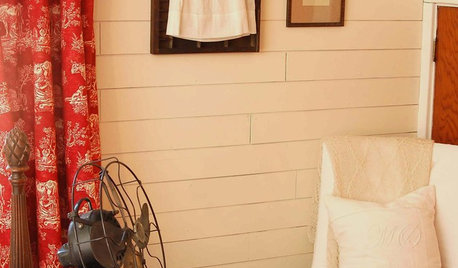
zzackey